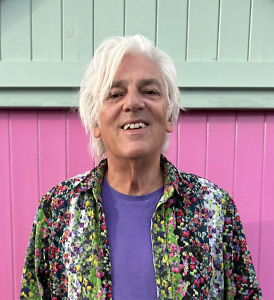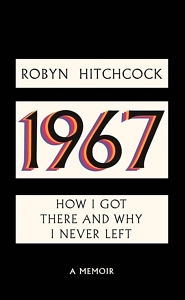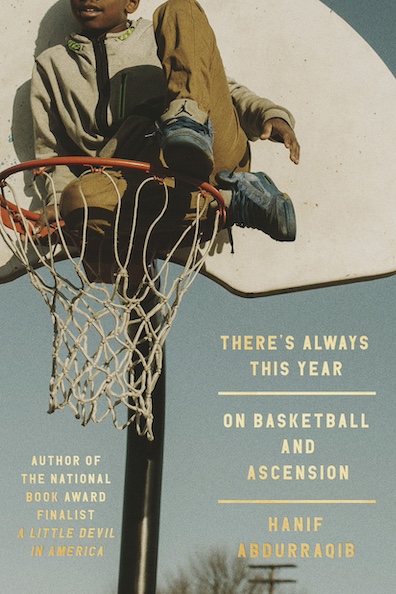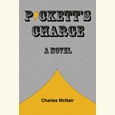The Year of Living Surreally
For Robyn Hitchcock, the psychedelic call of 1967 inspired a lifetime of music
Singer-songwriter Robyn Hitchcock, purveyor of delightfully twisted pop for going on half a century, now gives us a memoir called 1967: How I Got There and Why I Never Left.
It’s part time capsule, part snakes in a can.

Which is to say, it’s daft (but smart), ever so surreal, and pure Hitchcock.
If you love his music — say, the early mad jangle of the Soft Boys’ “I Wanna Destroy You,” or the ridiculously poppy “Balloon Man” with his band The Egyptians — you’ll love the book and enjoy this trip to the formative year of ’67. It’s the year he turned 14, in a very English boarding school called Winchester College. Records spin — “these sacred pieces of plastic that have become the grails of our lives” — and young Robyn is never the same. He’ll go on to make a lifetime of his own music, fired by the likes of Bob Dylan, the Beatles, the Kinks, and The Incredible String Band.
If you don’t know his music, dive in. If you’ve tried and didn’t get it, try harder — there’s a Hitchcock record for most everyone, from folkies to pop fans to punks and alt-rockers, though he always sounds like his psychedelic-besotted self.
What makes the book a worthy flipside to the music is his approach. Hitchcock writes from the perspective of that British schoolboy, away from home, lonely and confused, but with eyes peeled and ears perked for what’s happening. Often, it’s something by Dylan:
The song seems to be addressing me personally, marooned in this nest of aliens. I miss my family, my world, my old school. At twelve years and ten months I’m already becoming nostalgic. But I can’t go back — time is a one-way ticket.
Young Robyn adores Bob — the wisdom and word play, the enigmatic nature, the way he seems to understand that life is a joke. He plays “Don’t Think Twice, It’s All Right” for his Granny. She declares: “‘jolly good — well done!’”
But Hitchcock’s expanding consciousness has room for other sounds. There’s a new band he rather likes called Pink Floyd. When he’s learning to play one of their songs on guitar, he realizes it seems based partly on Howlin’ Wolf’s “Smokestack Lightning.” He’s also quite taken with “The Letter” by Memphis pop band the Box Tops — it’s “urgent and makes you want to get out of bed. The singer is a very young guy called Alex Chilton, not much older than we are.”
And then, crucially, there’s The Incredible String Band (ISB), whose ’67 album has the oh-so- ’67 title of “The 5000 Spirits or the Layers of the Onion.”
The music is like the cover: teeming with joy and a mysterious darkness that underpins it. The songs are simultaneously celebrations and laments; like Dylan, [ISB principals] Mike Heron and Robin Williamson seem to sense how sadness is the shadow of beauty. Unlike Dylan, they also sense the holiness of all living matter. These people must be very stoned.
 This is not a book about getting stoned, however. It’s about being high on the strange music of the times — so high that you never want to come down. And so Hitchcock doesn’t. (Which is no idle metaphor; Hitchcock’s best songs really do sound as if they’re being beamed down to us.)
This is not a book about getting stoned, however. It’s about being high on the strange music of the times — so high that you never want to come down. And so Hitchcock doesn’t. (Which is no idle metaphor; Hitchcock’s best songs really do sound as if they’re being beamed down to us.)
Yes, this is a book for Hitchcock fans and music geeks generally. But it’s more. It’s an Anglophile’s dream, set in the world of cloistered boarding schools and the quite English eccentricities of family life: a Dylan-approving Granny; a father who was wounded at Normandy and goes on to become a writer; a mother who tells him, as she lights a Player’s Navy Cut cigarette, “’Childhood is the only totalitarian state, darling.’”
His mother has him read Virginia Woolf and William Faulkner, who don’t have quite the same influence on young Robyn as Dylan or Pink Floyd’s Syd Barrett — or a slightly older student at a local art school, a few years from his own musical career but already possessing “the aura of a sage.” His name: Brian Eno.
Hitchcock attends a music “happening” conducted by Eno. There’s a record playing backward, a droning violin, blue lights, incense. Afterward, Eno says, “Any questions?” Someone asks if this is considered music, or something new and different.
Says Eno: “‘Oh, it’s all music, man: when you sneeze it’s music, you know?’”
Young Robyn breathes in all these influences, all these experiences, which swirl about with his own considerable gifts — wit, smarts, an eye for the absurd. Mixing up the medicine, Dylan might call it.
And he becomes what his 14-year-old self so admired: a writer and singer of songs that speak to people, that move them, make them laugh and think and maybe give company to their loneliness. Songs about insects and trains. A song called “Queen Elvis” and another titled “Raymond Chandler Evening.” That great line in “Balloon Man” about how it rained “like a slow divorce.”
Now, over 70, after giving us so many memorable songs, he’s given us music on the page, a singular memoir that was one wild year — and a lifetime of memories — in the making.

David Wesley Williams is the author of the novels Everybody Knows (JackLeg Press, 2023) and Long Gone Daddies (John F. Blair, 2013). His short fiction has appeared in Oxford American, Kenyon Review Online, and in Akashic Books’ Memphis Noir. He lives in Memphis.


